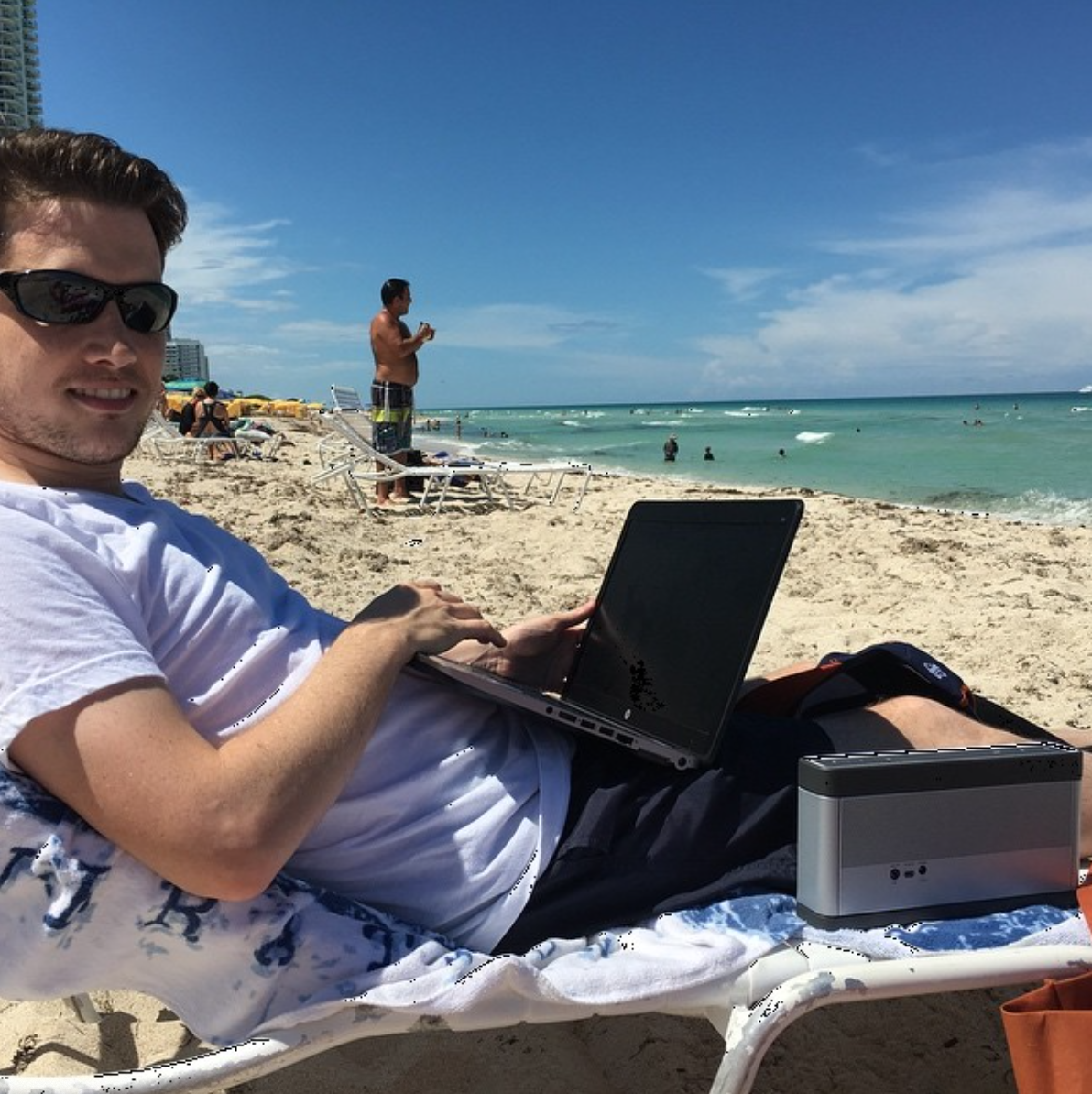One of the most important aspects of trading is also one of the least talked-about…
Everyone wants to talk about charts, setups, entries, and exits.
And while there’s nothing wrong with that…
You can master every technical skill of the stock market … but if you fail to master this simple practice, none of that will matter…
You’ll be doomed.
So, if you’re wondering what I’m getting at … keep reading and I’ll show you.
Why Personal Money Management Matters for Traders
In case you haven’t guessed yet, I’m talking about personal money management.
How you manage your bankroll and personal expenses can hugely affect your trading.
Ask yourself:
- Are you risking an amount of capital that you’re comfortable with?
- Are you saving enough for taxes?
- Can you cover all of your everyday living expenses and still afford to trade?
After all, the stock market is driven by money. If you can’t manage your money well, you won’t be able to succeed as a trader.
How can you start managing your money like a pro?
Here are three simple steps that have helped me do so over 10+ years as a professional trader…
Step #1: Break Down Your Budget
The first thing you should do is create a simple spreadsheet of your monthly budget.
How much do you make? How much do you spend?
The difference between the two is your expendable income, a part of which you’ll need to dedicate to trading.
Only you can decide what portion of your income (or savings) you’re willing to risk in the stock market.
If you have children (like me), there are even greater considerations. Are you positive you can support your family while trading?
Every person has a different risk tolerance. Some people love to gamble and spend, while others pinch pennies and frugally save.
Maybe you’ll have some incredible beginner’s luck … funding your trading account only once and growing it from there.
The Next Trillion Dollar Chipmaker After NVDA (Not AI)
Is this little known chipmaker the next NVDA?
It has nothing to do with AI, but this company’s patented chip could generate NVDA sized gains in the coming months…
Companies like Microsoft, Intel, and Google are all quietly racing to be at the forefront of this new phenomenon…
But unfortunately for them…
This one small company holds the key to this revolution…
But many newbies have to fund their accounts more than once in the beginning. There’s nothing wrong with that — especially if you don’t have a large savings account to pull from.
Additionally, having a steady job while part-time trading is another option. In fact, this can be an excellent way for newbies to dip their toes into the stock market without relying on it for income.
Step #2: Never Risk More Than You’re Willing to Lose
Before you make any deposit into your trading account, ask yourself … how would you feel if you lost 100% of that money?
Of course, the plan is to grow the money. And if you study hard and apply yourself, that’ll probably happen for you.
But you can’t ignore the possibility that your first few trades will go south and take your hard-earned money with them.
And in the event that this happens, you wanna make sure you’re risking expendable income.
If losing your initial small-account capital would put a serious strain on your lifestyle, then you’re trading with too much size.
This is obviously important because you need to be able to cover your basic expenses, but there’s another reason to consider this as well…
Bottom line: If the money you’re trading is absolutely essential for you to live, you won’t make the best decisions when trading it.
You’ll be too emotionally attached to that money, which could lead to terrible trading decisions ‘in the moment.’
On the other hand, if you can find the perfect account size — one that gives you slack to make decent money but doesn’t make you lose your stomach every time a dip occurs — you could potentially become an unstoppable trader.
Step #3: Set Aside 25% of Profits for Taxes
Options contracts are taxed based on a 60/40 split between the long and short-term capital gains rates.
This means that 60% of the gain (or loss) is taxed at the long-term rate, while 40% is taxed at the short-term rate.
These rates depend on your taxable income and filing status.
The way options contracts are taxed can be very confusing, especially to anyone new to the options market.
But as a general rule of thumb, you should be setting aside a minimum of 25% of any profits you make for taxes.
You may end up paying a lower % owed at the end of the year, but it’s better to be safe than sorry.
Then, I recommend that anyone making money in the options market work with a professional tax consultant to determine what their liabilities are.
It’s a small price to pay to a professional who’ll help you avoid being slapped with fines or penalties later on down the road.
Make sure your finances are in order so that you can focus on the best setups without emotional attachment.
Break down your budget, never risk more than you’re willing to lose, and always set aside money for taxes.
All in all, it may not be the most fun part of being a trader, but personal money management is vital to your success as one.
And speaking of being a successful trader…
Are You Ready To Level Up Your Trading Game?
Here’s the truth … I wouldn’t be a multi-millionaire if I hadn’t joined Tim Sykes’ Trading Challenge so many years ago.
And I want you armed with all of the tools necessary for success in the stock market.
So, if you’re passionate and dedicated, ready to take on anything the market throws at you, then I’ve got something for you…
My mentor, Tim Sykes, has helped traders learn to succeed for years. More than 30 of them (including me) are now millionaires.
Are you ready to take your trading game to the next level? Do you have what it takes to face the Trading Challenge?
Let’s find out…
CLICK HERE TO SIGN UP TODAY FOR ONE OF OUR FREE, LIVE TRAINING CLASSES!
I’m excited to see you there!


